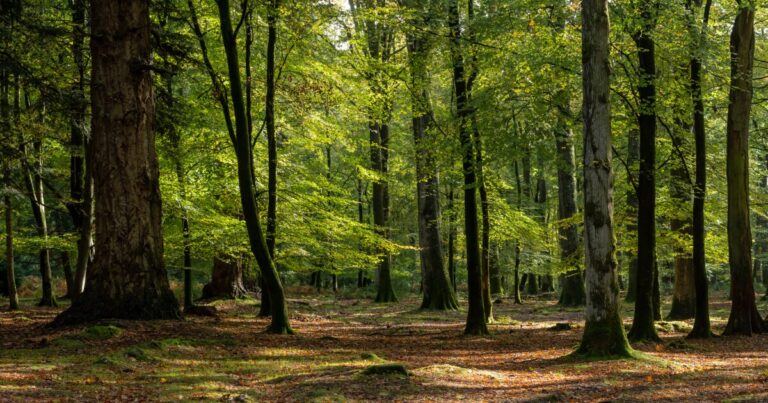Critics argue that DTE Energy's “natural gas balance” carbon offset program is a marketing ploy rather than a real way to reduce carbon emissions.
But the utility is defending the pilot project as one of many ways to reduce carbon emissions.
Registered DTE customers can offset some or all of the carbon emissions from burning natural gas in their homes by paying an additional $4 to $16 per month.
The utility program will use its fees to “protect forests across the Upper Peninsula” through the purchase of carbon offset credits for national forests and investments in renewable natural gas, which means capturing methane from landfills. states that it is used for
DTE says the program limits aggressive tree removal throughout Michigan, including the 100,000-acre Pigeon River Country State Forest.
Meanwhile, the Michigan DNR, which manages the national forests, said funds from the credits support climate change mitigation funds but have not had a “noticeable impact” on forest management practices or timber harvest levels.
Tim Minotas is a member of the Michigan Chapter of the Sierra Club. He said the program appears to be primarily a marketing ploy to improve the utility's image, and customers are paying for it.
“They are taking advantage of customers who are actually environmentally conscious and creating the illusion that they are actually doing good when in reality DTE is just doing business as usual and making a profit. ” he said.
But DTE Energy said a third party is monitoring the program to ensure the credits reflect real-world carbon emissions reductions.
DTE Energy asked the Michigan Public Service Commission to extend the pilot project for an additional three years. This is despite a loss of more than $1 million on the 2022 program, primarily due to marketing costs, as stated in a March 2023 report to the European Commission.
“The total number of registrants was as expected, but the average
“Due to participation levels being lower than modeled, we had to seek additional time during the pilot phase,” the utility said in a report.
In the meantime, the company said it will continue to evaluate program performance and customer sentiment, as well as experiment with marketing and sales strategies.
Consumers Energy also has a voluntary natural gas credit offset program called “MI Clean Air,” but it is a much smaller program than DTE Energy's pilot project. The utility said in a report to the MPSC that customer registration revenue totaled $20,657 in 2022 and marketing expenses totaled $97,702.
Consumers Energy said in a statement that it plans to reduce greenhouse gas emissions from the entire natural gas system, including its customers and suppliers, to net zero by 2050.
“Consumers Energy does not suggest that our MI Clean Air program is the whole answer, but it does provide a meaningful contribution to our plan. Our forestry offsets help Michigan We support projects where we are based and are certified to the highest standards by the U.S. Carbon Registry.”
Editor's note: DTE Energy and Consumers Energy are among Michigan Public's corporate sponsors.


